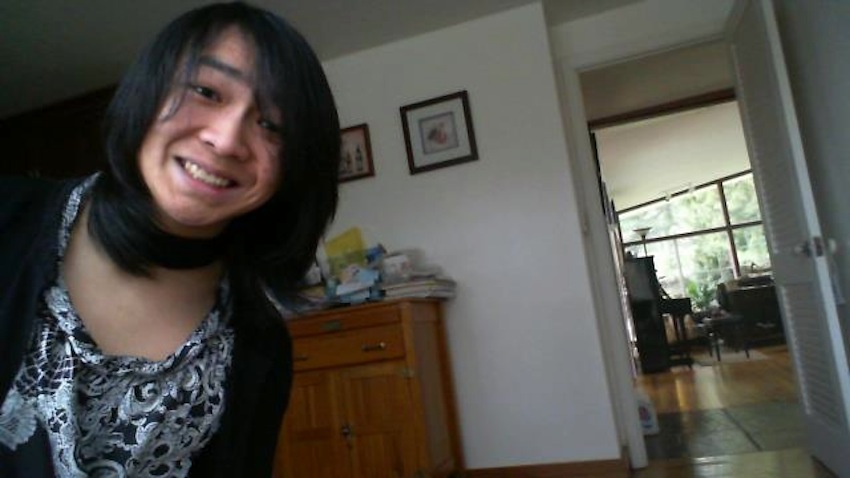Transgender Student’s Application Sent Back By All-Women’s College Twice
Members of a national gay and lesbian activist group are calling on a Massachusetts college to reconsider its policies on reviewing the transcripts of transgender students after a Connecticut woman had her application denied more than once.
Calliope Wong, 17, who was born a male but has identified as a female for several years, says she sent an application to Smith College in Northampton on two separate occassions. But because some of Wong’s financial aid forms identify her as a male—to match her social security number—both times the documents were returned to her. Now, Wong, with the help of the Gay & Lesbian Alliance Against Defamation (GLAAD), is trying to spur change at the school. “Going forward, I would like Smith to adopt an inclusive admissions process that reviews applications of trans women exactly the same as other women,” Wong told Boston magazine in an emailed statement. “Schools should be focused on building our next generation of leaders, not discriminating against them.”
After her forms were returned a second time, Wong says there is “not a chance” she will get into Smith, but she has gained national and local support for her continued efforts. “There was never any fair shot for me,” she writes on her Tumblr blog, where Wong has been updating people about her experience. “But I tried my best to do things right. At least I can say that.”
Noah Lewis, an attorney at the Transgender Legal Defense & Education Fund in New York City is also standing behind Wong, and recently blasted the school, calling their actions discriminatory and wrong. “Transgender students just want the same educational opportunities as other students, and federal law protects them from discrimination in education,” Lewis said in a statement. “The only thing standing in the way of Smith admitting transgender women is Smith’s refusal to do it. As an institution founded on principles of educational equity, Smith should just do the right thing and educate transgender women like other women.”
When Smith returned her transcripts and college applications for a second time in early March, because her Free Application for Federal Student Aid (FAFSA) form identified her as male, Wong included a copy of the rejection letter on her blog. The letter reads:
We are returning your application for admission, along with your application fee. As you may remember from our previous correspondence, Smith is a women’s college, which means undergraduate applicants need to be female at the time of admission.
Wong said prior to applying at the school, she started researching Smith’s policy on accepting transgender students. Wong claims that, over the summer, the school’s dean of admissions told her that as long as “all her pronouns were female on the school’s applications, they would be ‘consistent with what Smith is expecting.’” “She spoke of school papers and transcripts consistently reflecting ‘female’ for my application. Nowhere was there mention of FAFSA, a federal financial aid form,” says Wong on her Tumblr. Regardless, Wong still found herself battling with the all-women’s college, despite information on Smith’s official website that claims the school is all-inclusive. According to the website:
Like nearly every college, university and school today, Smith College has a diverse and dynamic student body that includes individuals who identify as transgender. Students at Smith, whatever their gender identity or gender expression are diverse, accomplished, and various in their views.
Smith’s policy also states that a transgender student’s application “is treated no differently from other applications,” but each one Smith receives is considered on a case-by-case basis. “Like most women’s colleges, Smith expects that, to be eligible for review, a student’s application and supporting documentation (transcripts, recommendations, etc.) will reflect her status as a woman,” the policy states. Smith representatives would not comment on Wong’s specific case, however, officials told Boston magazine that “the admission of transgender students to women’s colleges is a complex and evolving issue, and one on which people of good intent hold a range of views.”
In a statement, Laurie Fenlason, Smith’s Vice President of public affairs, said the school is committed to continuing the conversation about transgender students with the campus community, their alumnae, and the transgender community at large, as well as other educational institutions. “In both our admissions and campus life, we are committed to being as welcoming as possible in the context of our mission as a women’s college. Smith has long stood for women’s rights to self-determination and that support remains unchanged,” she said.
Wong says there will always be social injustices like hers, but she hopes that Smith revises their policy, because no one should have to “go through what [she] went through.” While the process has been a difficult one, Wong said the support she has received from members of the Smith community, and GLAAD, has kept her spirits high. “There have been so many in the trans community, as well as Smith alumni and current students, who have reached out in support of me via email or Facebook. Smith Q&A, an on-campus group, has been continuing a powerful photo campaign to raise visibility for the fact that students and alumni support inclusion of trans women at Smith College.”
Wong has no intention of trying to appeal the school’s decision, however. “Smith College’s decision not to process my application based on my FAFSA sex marker is at Smith’s sole discretion. Their hand was not forced; they chose this,” says Wong.



